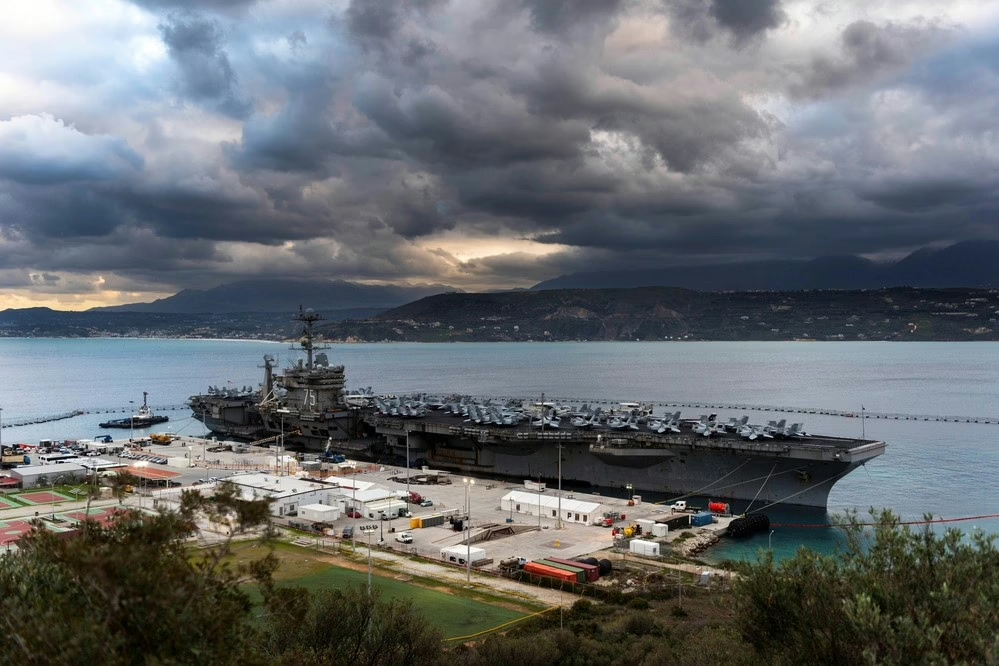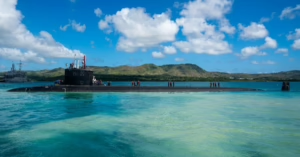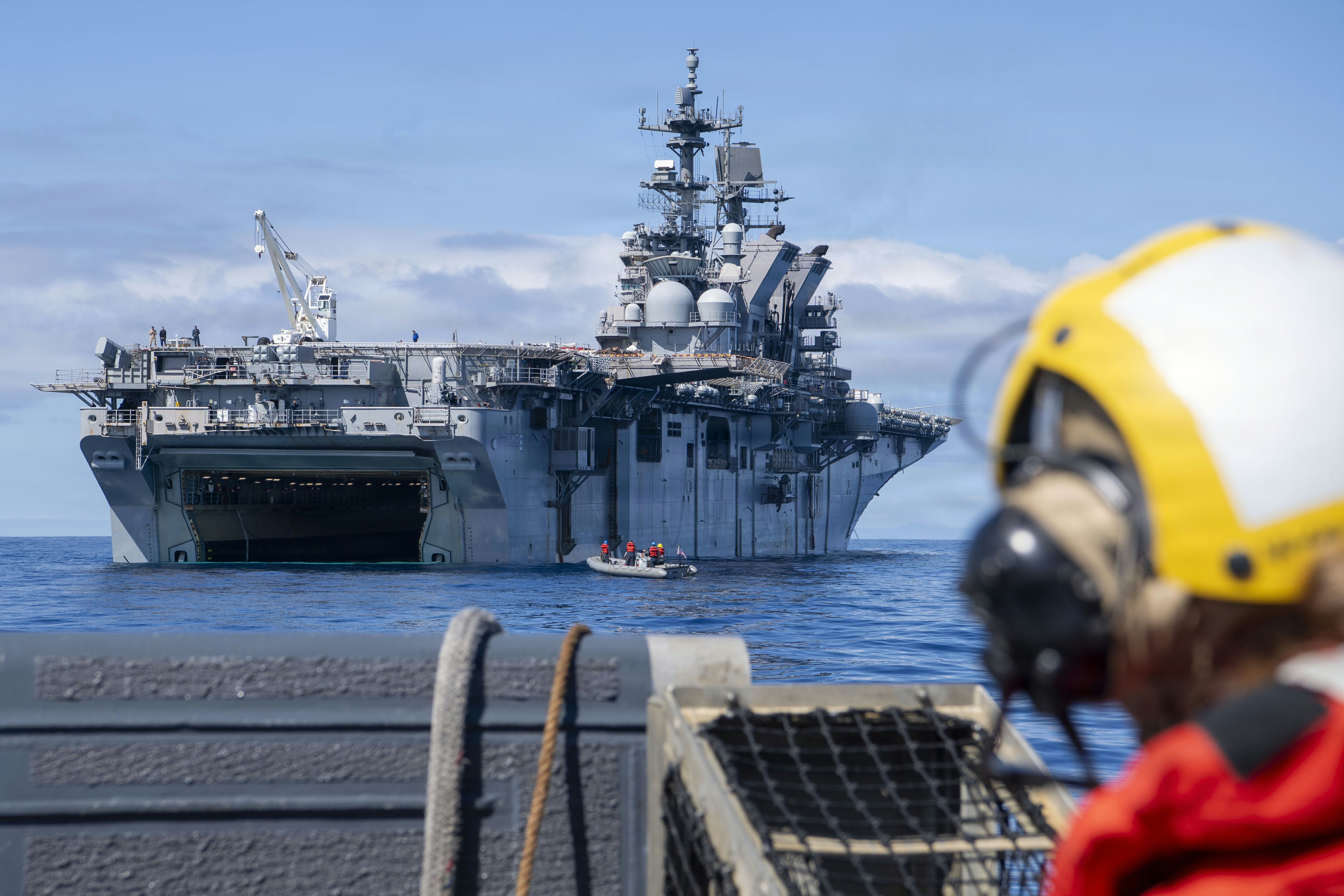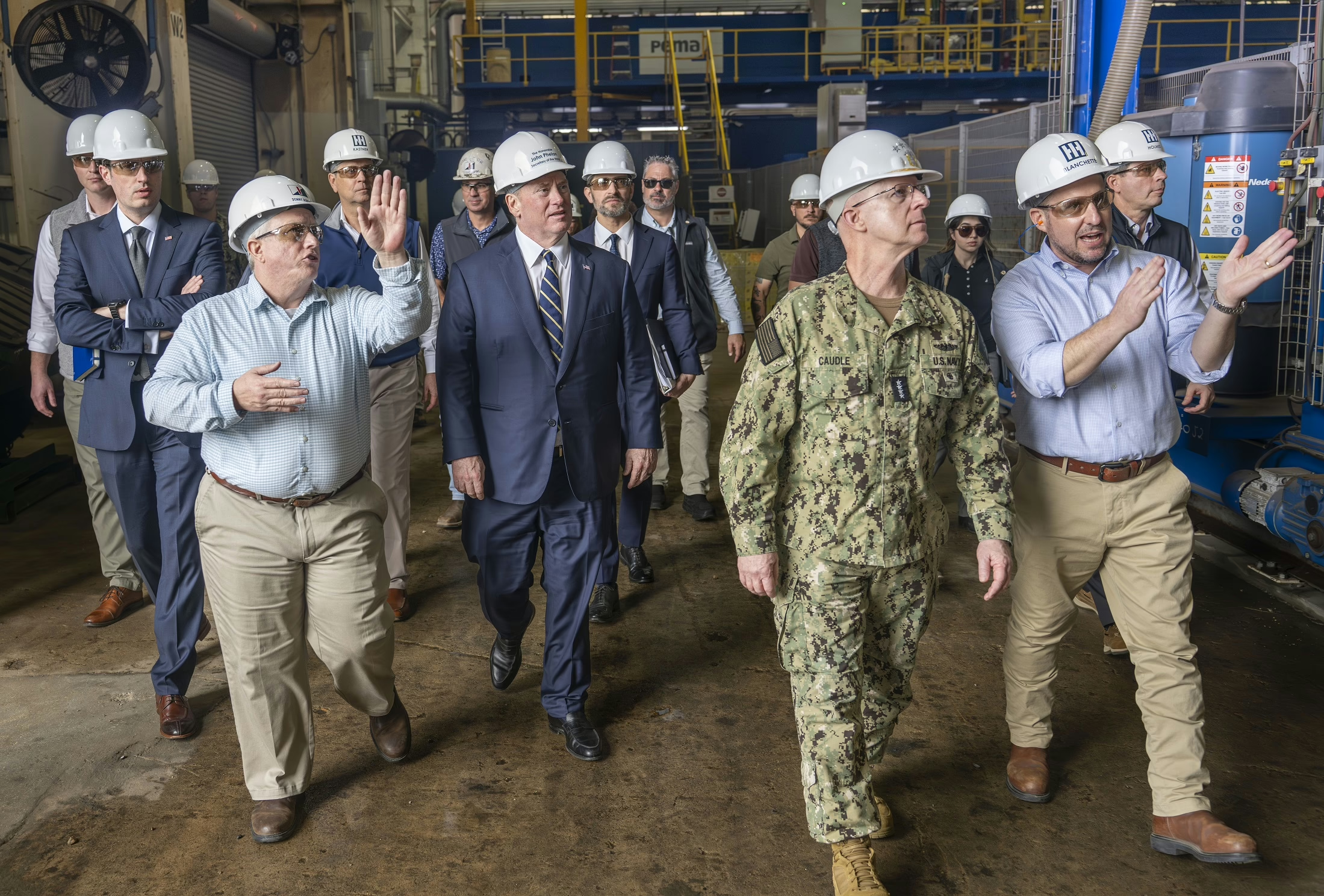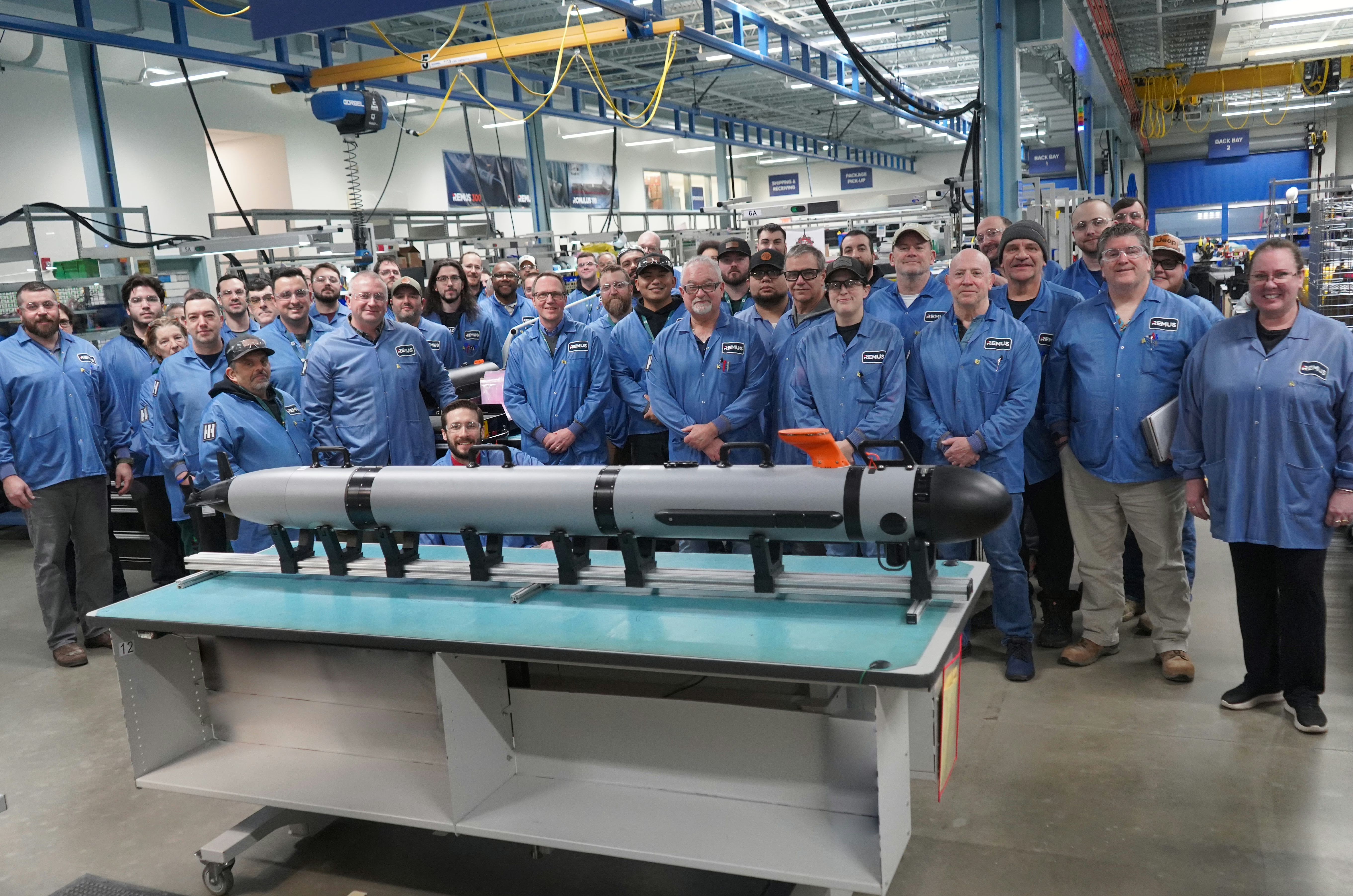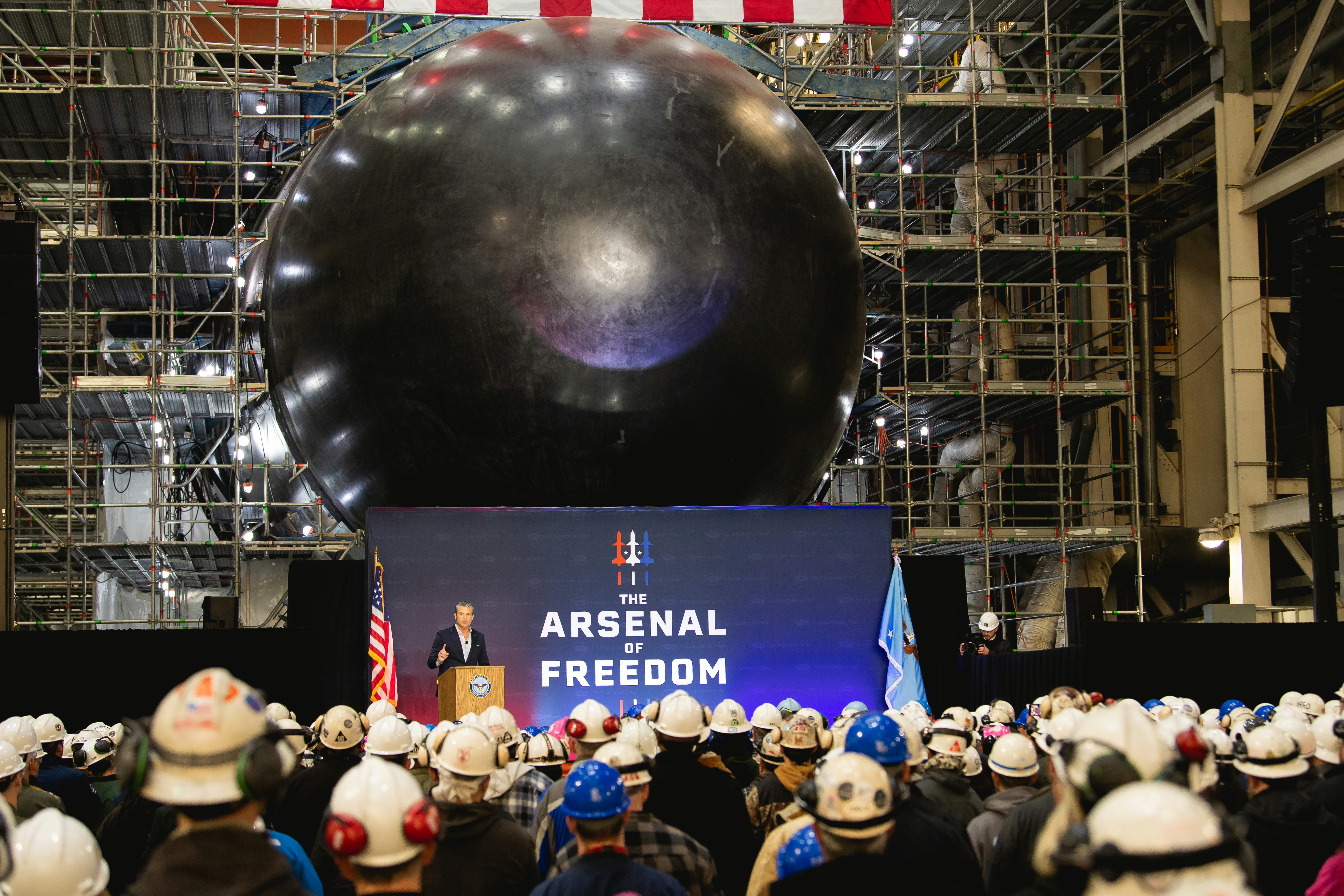Photo Caption: NAVAL SUPPORT ACTIVITY SOUDA BAY, Greece (Feb. 6, 2025) The Nimitz-class aircraft carrier USS Harry S. Truman (CVN 75) arrives at the NATO Marathi Pier Complex in Souda Bay, Crete, Greece, during a scheduled port visit on Feb. 6, 2025. NSA Souda Bay provides logistical and operational support to the components of the Harry S. Truman Carrier Strike Group, which arrived in the Eastern Mediterranean after two months of combat operations in the U.S. Central Command area of responsibility. NSA Souda Bay is an operational ashore installation that enables and supports U.S., Allied, Coalition, and partner nation forces to preserve security and stability in the European, African, and Central Command areas of responsibility.
Feb. 14, 2025
HII’s Weekly News Digest is compiled every Friday by the Corporate Communications team to summarize and highlight news stories of significance to the company.
Hegseth: Trump Supports AUKUS Alliance: The Australian Financial Review reported on Saturday that U.S. Defense Secretary Pete Hegseth told his Australian counterpart Richard Marles that Donald Trump backs the trilateral AUKUS agreement involving the U.S. Australia and United Kingdom. Following a meeting between Hegseth and Marles, Australia made the first of six $500 million payments that will be used to boost the U.S. submarine industrial base. Inside Defense reported on Tuesday that U.S. Reps. Trent Kelly, R-Miss., and Joe Courtney, D-Conn., the chairman and ranking member of the House Armed Services seapower and projection forces subcommittee, respectively, are calling on the Defense Department to deliver a legally mandated spending plan for $500 million in submarine industrial base aid. The funds contributed by Australia must be placed in the “Submarine Security Activities Account,” and the president needs to submit a spending plan to Congress “detailing the amount of funds and how such funds will be utilized,” according to a letter from Kelly and Courtney to Defense Secretary Pete Hegseth.
Steel, Aluminum Tariffs Take Effect March 12: Reuters reported on Tuesday that new 25% tariff rates on steel and aluminum imports into the United States are due to take effect on March 12, according to the executive orders signed by President Donald Trump on Monday. The New York Times reported on Monday that the tariffs were welcomed by domestic steelmakers, who have been lobbying the Trump administration for protection against cheap foreign metals. The orders are a revival of policies from Trump’s first term when he levied 25% tariffs on foreign steel and aluminum. Studies have shown that while Trump’s first round of metal tariffs helped American steel and aluminum producers, they ended up hurting the broader economy because they raised prices for many other industries. Defense News has previously reported that tariffs drive up demand for domestically-produced materials, tightening supplies, which force prices for customers upward. Todd Harrison, a senior fellow at the American Enterprise Institute, said the Pentagon will feel the burden of those higher prices as they’re passed on from manufacturers to the Defense Department.
Anduril To Take Over $22 Billion IVAS Program From Microsoft: Defense Daily reported on Tuesday that Anduril Industries will take over as the prime contractor for the Army’s potential $22 billion Integrated Visual Augmentation System (IVAS) program, pending approval of a new agreement with Microsoft. Under the arrangement, Anduril would be responsible for building IVAS and leading future hardware and software development of the new mixed-reality headsets while Microsoft would shift over to managing the cloud computing and artificial intelligence-related aspects of the program. Breaking Defense reported on Tuesday that the Army still needs to bless the new agreement. Anduril founder Palmer Luckey, who made his tech breakthrough with the commercial Oculus VR headset, has been teasing development of a new mixed-reality device with military applications. Defense Scoop reported on Tuesday that IVAS has been one of the service’s highest-priority modernization initiatives. The system includes ruggedized headgear and software with night-vision, thermal-sensing and augmented reality capabilities, among others.
| Social Media Highlight Of The Week
Posted Wednesday on HII’s LinkedIn page: Virginia-class fast-attack submarine USS Vermont sits pretty in Apra Harbor, Naval Base Guam, on January 20. The sub and its crew are currently on deployment supporting the U.S. 7th Fleet, the U.S. Navy’s largest forward-deployed numbered fleet. Newport News Shipbuilding, A Division of HII, is one of only two shipyards capable of designing and building nuclear-powered submarines, and we’re proud to employ a talented team of tradespeople with the expertise needed to bring the most advanced attack submarines to life. |
Nippon Steel Now Plans Major Investment In US Steel: The New York Times reported on Friday, Feb. 7, that Japanese-owned Nippon Steel is planning to make a major investment in U.S. Steel, rather than trying to buy the company outright. Nippon’s potential $14 billion purchase of U.S. Steel last year was blocked by the Biden administration because of national security concerns. The Wall Street Journal reported on Feb. 7 that Japanese Prime Minister Shigeru Ishiba said that as a part of the investment, Nippon will bring Japanese technologies to U.S. Steel. The United Steelworkers union opposes both the sale of the company to Nippon and the proposed investment. Reuters reported on Thursday, Feb. 6, that with the proposed deal, the world’s fourth largest steelmaker is aiming to boost its global crude steel output capacity to more than 100 million metric tons in the longer term. Aside from the U.S. where it is already present, Nippon Steel wants to expand further in India and Southeast Asia, where it expects demand for steel to grow and where some nations have tariff protection measures in place to limit imports, including from China.
HII’s Weekly News Digest is produced by HII’s Corporate Communications team and posted to Homeport every Friday.
Please note: Social media is blocked on HII computers for most employees. Employees are encouraged to visit HII’s Facebook page and other social media sites on personal time and from non-work devices.
Send feedback to: HII_Communications@hii-co.com.
